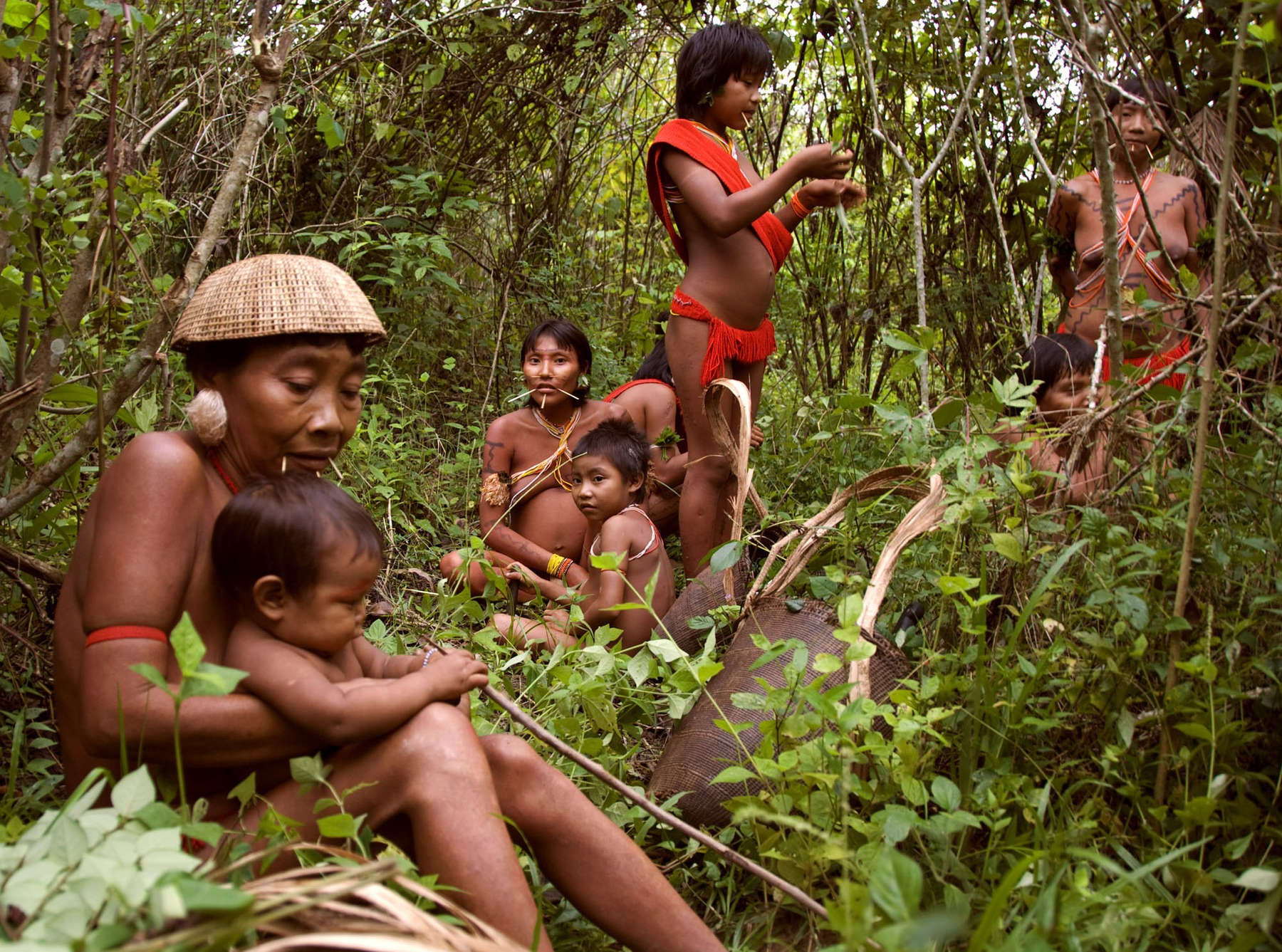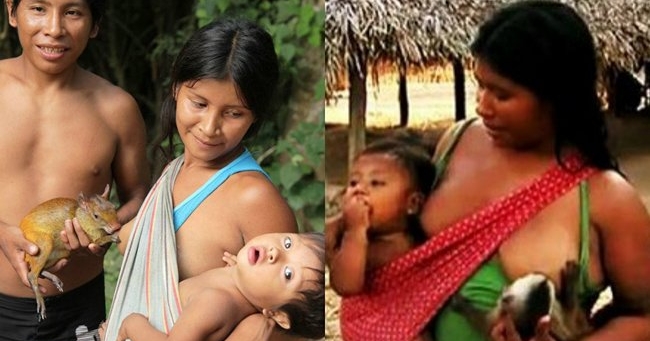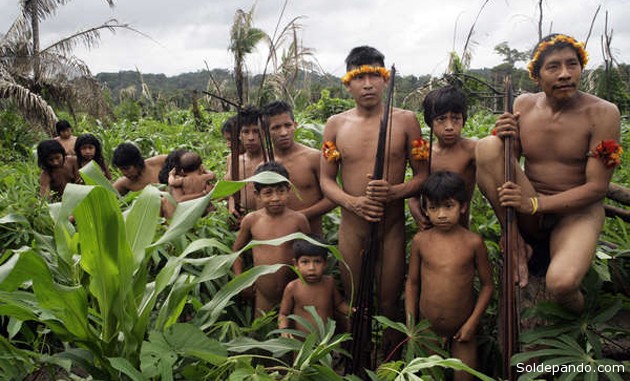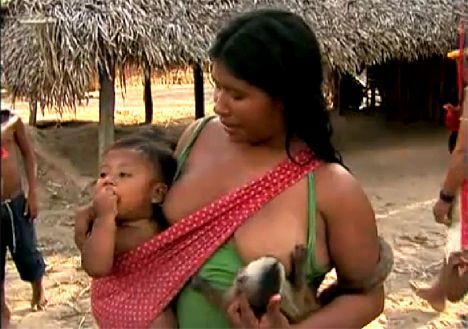

These women care for orphaned animals, but it's not the same as human breastfeeding.
Deep in the Amazon rainforest of Brazil, the Awa tribe lives in harmony with nature, practising traditions that may seem unusual to outsiders.
One of the most remarkable customs of this tribe, particularly among the women, is the adoption and breastfeeding of wild animals.
Who are the Awa people?

The Awa tribe is one of the world's most endangered indigenous groups. Originally numbering in the tens of thousands, only about 300 members remain today, with around 60 having had no contact with the outside world. They are nomadic people who have survived despite centuries of displacement and threats from colonists, ranchers, and illegal loggers.
Living in small family groups, they build simple shelters from leaves and branches. Their lives revolve around hunting, fishing, and gathering wild plants for food.
The practice of breastfeeding animals
The Awa have a profound respect and connection with the rainforest. They view all living things, from plants to animals, as part of their extended family. This deep connection with nature influences their customs and traditions in many ways, including the unique way the Awa women breastfeed animals, treating them like their own children.

When a young animal, like a monkey or a squirrel, loses its mother, the Awa women sometimes take it in and breastfeed the orphaned animal just as they would their own children.
This act of breastfeeding helps to establish a bond between the woman and the animal, making it a 'hanima,' or family member. Once an animal has been integrated in this way, it is never hunted or harmed by the tribe, even if it returns to the wild. The Awa believe that these animals are as much a part of their family as their human children, and they play important roles in their daily lives, helping with tasks such as gathering food.
Why do they do this?
There are several possible reasons why the Awa practice this unusual custom.
1. Survival: Orphaned animals are highly vulnerable. By providing milk and care, the Awa ensure their survival and increase biodiversity in the rainforest.
2. Respect for nature: Breastfeeding reflects the Awa's deep respect for all living things. It shows their commitment to protecting the animals they share the rainforest with.
3. Symbiotic relationship: Some believe this custom builds a special bond with the animals. These animals, when grown, may even help the tribe by cracking open nuts or collecting fruit from high trees.
A threatened way of life

Sadly, the Awa way of life is under threat. Illegal loggers and miners are encroaching on their territory, destroying the rainforest they depend on. This not only disrupts their way of life but also reduces the availability of wild animals that they care for.
This content was created with the help of an AI model and verified by the writer.
Read Full Story
















Facebook
Twitter
Pinterest
Instagram
Google+
YouTube
LinkedIn
RSS